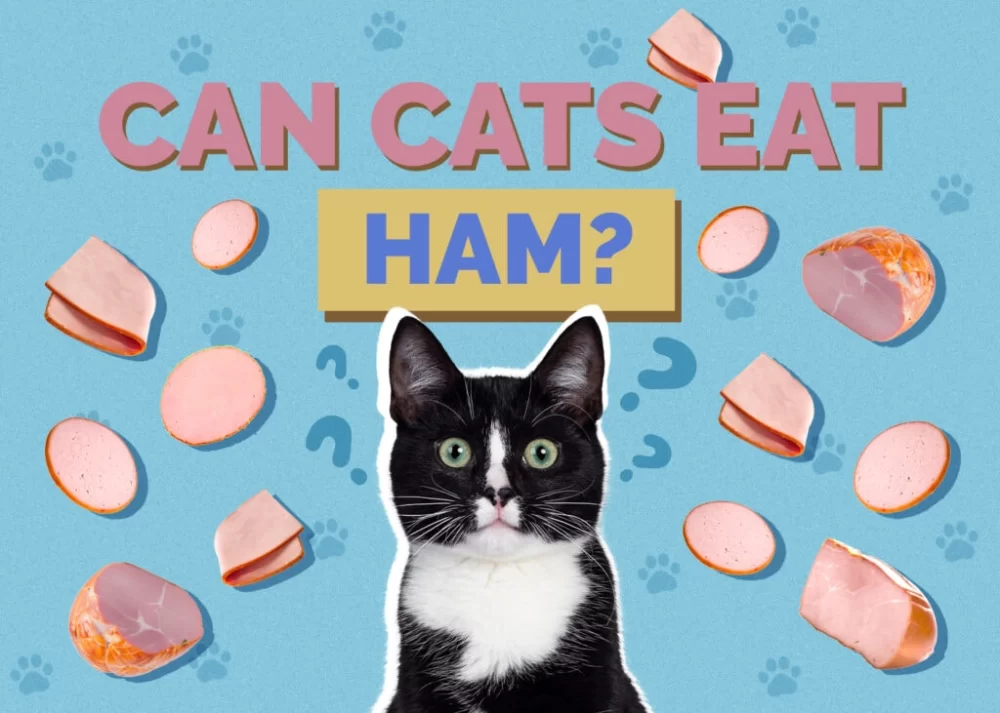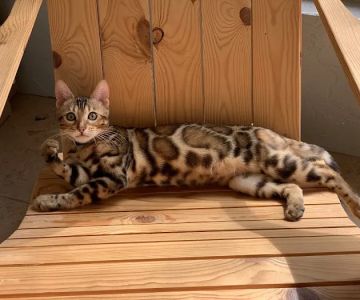Can Cats Eat Cooked Ham? Understanding the Risks and Benefits
As pet owners, we all want to share the joy of our meals with our furry friends. When it comes to cooking a delicious meal, it’s common to wonder whether it's safe to offer your cat a little piece of that tasty cooked ham. While ham may seem like an irresistible treat, it’s essential to understand the nutritional impact and possible risks it may pose to your pet. In this guide, we’ll discuss whether cats can eat cooked ham, the potential health concerns, and alternatives that are safer and healthier for your feline friend.
What Is Ham Made Of and Can Cats Eat It?
Ham is a type of meat that comes from the hind leg of a pig, often prepared through curing, smoking, or cooking. It's a popular food in many households, especially during festive meals. For us humans, ham is a savory delight, rich in flavor and protein. However, when it comes to our feline companions, the question of whether cats can safely eat cooked ham is more complicated.
In general, cats are obligate carnivores, meaning they require a diet primarily made up of animal-based proteins. So, ham does provide some nutritional benefits for cats, like protein and fat. But the issue isn’t just about the basic nutrients – it’s about the other ingredients that often accompany ham, such as salt, preservatives, and spices, which can cause health problems for your cat.
Health Risks of Feeding Cats Cooked Ham
Despite its protein content, cooked ham poses several health risks for cats that every pet owner should be aware of:
- High Sodium Content: One of the biggest concerns when feeding cats cooked ham is its high sodium content. Ham is typically cured with salt, which can lead to excessive sodium intake for your cat. Too much salt can cause symptoms like increased thirst, urination, and in severe cases, sodium poisoning. This can lead to dehydration, kidney damage, or other serious health issues.
- Preservatives and Additives: Many commercially available hams contain nitrates, nitrites, and other preservatives that help extend shelf life. These chemicals are not only unnecessary for cats, but they can also be harmful. Regular consumption of such additives could lead to long-term health problems like digestive issues or an increased risk of cancer.
- High Fat Content: Ham is often a fatty meat, and while fat is necessary in a cat's diet, too much of it can cause obesity and digestive issues. Cats are sensitive to fatty foods, and consuming large amounts of fat can lead to pancreatitis, a painful condition involving inflammation of the pancreas.
- Potential for Food Allergies: Some cats may also have food allergies or intolerances, and ham could trigger adverse reactions, including vomiting, diarrhea, or skin rashes. If your cat has never had ham before, it's best to introduce it slowly and monitor for any signs of allergies.
Signs of Ham Poisoning in Cats
If your cat consumes too much cooked ham or ham that is seasoned with harmful ingredients, it may show signs of poisoning or distress. Common symptoms include:
- Vomiting
- Diarrhea
- Excessive thirst or urination
- Loss of appetite
- Lethargy or weakness
- Abdominal pain
If you notice any of these symptoms after your cat has eaten ham, it’s crucial to consult with a veterinarian immediately. They may recommend treatment based on the severity of the symptoms.
Alternatives to Ham for Cats
While it might be tempting to offer your cat a piece of cooked ham, there are much safer and healthier alternatives. Cats thrive on a balanced diet of specially formulated cat food that provides all the necessary nutrients they need to stay healthy. However, if you want to treat your cat to something special, here are some safer alternatives:
- Cooked Chicken: Plain, boneless, skinless chicken is a great alternative. It's high in protein and generally low in fat, making it a suitable treat for cats.
- Turkey: Like chicken, turkey is a lean meat that's safe for cats. Just make sure it's plain, without any seasoning, and cooked thoroughly.
- Canned Tuna in Water: Many cats love tuna, and it can be offered occasionally in small amounts. Be sure to choose tuna canned in water, not oil, and avoid any added salt or seasoning.
- Catnip: If you’re looking for a treat that’s safe and enjoyable for your cat, try fresh or dried catnip. It's completely safe and can provide hours of entertainment.
Conclusion: Should You Feed Your Cat Ham?
While cats may technically be able to eat cooked ham in small amounts, it’s not recommended as part of their regular diet due to the health risks associated with its high sodium, fat, and preservative content. Feeding ham occasionally, as a small treat, is unlikely to cause serious harm, but it’s crucial to monitor your cat for any signs of discomfort or distress. Always prioritize their nutritional needs by providing a well-balanced diet specifically designed for felines, and consider safer protein options for occasional treats.
If you’re ever in doubt about what’s safe for your cat to eat, consult your veterinarian for personalized advice and recommendations. They can guide you in making the best choices to keep your pet healthy and happy!












